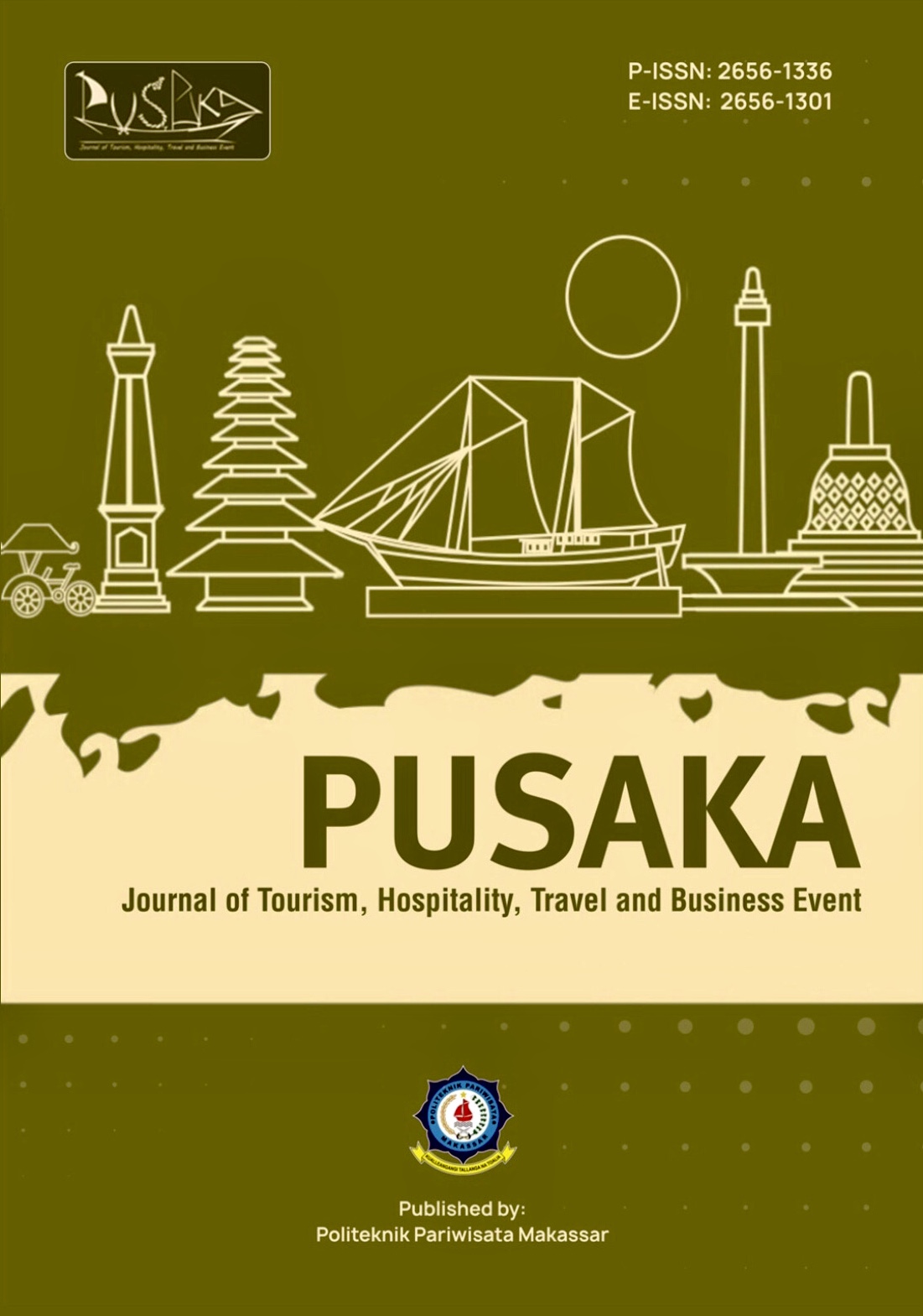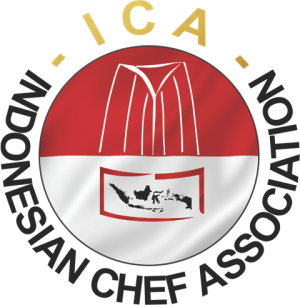Green Accounting Practice Model for Tourism Villages in Support of Sustainable Tourism in Bali
DOI:
https://doi.org/10.33649/padaidi.v1i2.344Keywords:
sustainable tourism, green accounting, disability tourism, financial transactionsAbstract
Tourism is currently in the spotlight because the massive use of natural resources is rumored to damage the order of life in the future. Various efforts are made for tourism business actors to maintain sustainability so that this nature remains sustainable. Information on sustainability activities is very important to be known by all parties to legitimize the implementation of sustainability. This research provides information on the implementation of sustainability practices in tourist villages with the main objective of designing a financial transaction model based on green accounting practices that have not been widely practiced in a tourist destination in the village. A qualitative approach was used to dig deeper into the data from five informants of tourist village managers who have implemented sustainability. The results of the study explain that transactions related to the environment are recorded, recognition of costs incurred, measurement, recording to accounts, then presented and detailed disclosure of environmental costs. In addition, it was found that environmental prevention costs, environmental detection costs and internal failure costs in strengthening sustainable tourism. The results of the study contribute to accounting science in revealing an environmental cost aimed at supporting sustainable tourism. This condition is a new way of maintaining sustainability oriented on financial transactions. This research can be developed quantitatively in strengthening the green accounting model associated with sustainable tourism.
References
Ardina, C., Astawa, I. P., & Dewi, N. I. K. (2022). Exploring green start-up finance for tourism villages. International Journal of Applied Sciences in Tourism and Events, 6(1), 60-64.
Astawa, I. P., Astara, I., Mudana, I. G., & Dwiatmadja, C. (2021). Managing sustainable microfinance institutions in the COVID-19 situation through revitalizing Balinese cultural identity. Quality- Access to Success, 22(184), 131-137.
Astawa, I. P., Sukawati, T. G. R., & Sugiartha, I. N. G. (2019). Developing a harmonious culture-based sustainable event model in Bali Tourism Village. Geo Journal of Tourism and Geosites, 25(2), 446-462.
Astawa, I. P., Sukawati, T. G. R., & Dwiatmadja, C. (2020). Credit risk management based on harmonious cultural values to support microfinance institution performance in Indonesia. Business: Theory and Practice, 21(1), 340-347.
Astawa, I. P., Sukawati, T. G. R., & Sugiartha, I. N. G. (2020). The light-up of dark Bali tourism: A qualitative study. In Tourism (pp. 1-16). IntechOpen.
Ayinla, B. S., Ike, C. U., Asuzu, O. F., Atadoga, A., Ndubuisi, N. L., & Adeleye, R. A. (2024). Environmental costing and sustainable accounting: A comprehensive review. World Journal of Advanced Research and Reviews, 21(2), 235-251.
Chandra, P., & Kumar, J. (2021). Strategies for developing sustainable tourism business in the Indian Himalayan Region: Insights from Uttarakhand, the Northern Himalayan State of India. Journal of Destination Marketing & Management, 19, 100546.
Creswell, J. W., & Creswell, J. D. (2018). Research design: Qualitative, quantitative, and mixed methods approaches (5th ed.). SAGE Publications.
Fathy, D., Naguib, H. M., Elsharnouby, M. H., & Shazly, R. E. (2024). From social media marketing to sustainable tourism development: How functionalities and destination image support sustainable tourism development. Management & Sustainability: An Arab Review.
Fitriani, F. (2024). Implementing sustainable finance and green accounting practices: Benefits and challenges. Accounting Studies and Tax Journal (COUNT), 1(4), 242-257.
Han, H., Chua, B. L., & Fakfare, P. (2024). Green marketing: Consumption and development of sustainable tourism and hospitality. Journal of Travel & Tourism Marketing, 41(4), 451-452.
Herny, H., & Herawaty, V. (2024). The effect of green accounting implementation, environmental performance, and sustainability growth on financial reporting quality with profitability as a moderating variable. Golden Ratio of Finance Management, 4(2), 151-160.
Hassoun, A. (2025). Sustainability amid conflict: Gaza's environmental, social, and economic struggles. Journal of Environmental Management, 376(5), 124-433.
Hutagalung, S. S. (2024). Sustainable tourism development: A model of adaptive destination management in Lampung Province, Indonesia. International Journal of Sustainable Development & Planning, 19(9).
Jeelani, P., & Shah, S. A. (2024). Strategic insights for sustainable tourism development in Kashmir Valley: SWOT and QSPM analysis. Environmental Development, 101092.
Karta, I. W., Astawa, I. P., & Budarma, I. K. (2023). Model transaksi keuangan berbasis green accounting dalam menunjang green hotel di Hotel The101 Bali Fontana Seminyak (Doctoral dissertation, Politeknik Negeri Bali).
Kusumah, E. P. (2024). Sustainable tourism concept: Tourist satisfaction and destination loyalty. International Journal of Tourism Cities, 10(1), 166-184.
Liaquat, M., Ahmed, G., Ismail, H., Ain, Q. U., Irshad, S., Izhar, S. S., & Mughal, M. T. (2024). Impact of motivational factors and green behaviors on employee environmental performance. Research in Globalization, 8, 100180.
Liu, J., Zaman, R., Atawnah, N., & Lehner, O. (2024). Guest editorial: Climate risk and environmental accounting in a world of change. Journal of Applied Accounting Research, 25(4), 777-782.
Lubis, I. T., & Aristantya, S. (2024). Sustainable development: Through the implementation of green accounting and material flow cost accounting. Jurnal Mantik, 8(2), 942-949.
Mallick, S. K., Rudra, S., & Samanta, R. (2020). Sustainable ecotourism development using SWOT and QSPM approach: A study on Rameswaram, Tamil Nadu. International Journal of Geoheritage and Parks, 8(3), 185-193.
Mishra, D., & Maheshwari, N. (2024). Spiritual tourism development: A comprehensive synthesis for sustainable destination planning and growth. Journal of Islamic Marketing.
Niewiadomski, P., & Brouder, P. (2024). From ‘sustainable tourism’ to ‘sustainability transitions in tourism’? Tourism Geographies, 26(2), 141-150.
Nikolaou, M., Achillas, C., & Dimou, V. (2024, May). Sustainability indicators for tourism destinations. In Olympus International Conference on Supply Chains (pp. 149-159). Cham: Springer Nature Switzerland.
Ningsi, E. H., Manurung, L., Lubis, I. T., & Widodo, S. (2024). Integration green accounting and firm value on financial performance. Atestasi: Jurnal Ilmiah Akuntansi, 7(2), 1043-1053.
Nugraha, I. G. P., Parma, I. P. G., Agustina, M. D. P., & Hutnaleontina, P. N. (2024). The role of government and community participation in realizing sustainable tourism development in Tihingan Village, Bali, Indonesia. Journal of Infrastructure, Policy, and Development, 8(8), 4621.
Pertama, S. P. E., Astawa, I. P., & Mudana, I. G. (2022). The implementation of environmental management accounting and sustainable tourism in tourism villages in Bali. International Journal of Glocal Tourism, 3(1), 28-37.
Ratmono, D., Mail, R., Cahyonowati, N., & Janie, D. N. (2024). The role of environmental performance in mediating the relationship between green accounting and corporate social responsibility. Environmental Economics, 15(1), 46.
Sampieri, S., & Bagader, M. (2024). Sustainable tourism development in Jeddah: Protecting cultural heritage while promoting travel destination. Sustainability, 16, 9148.
Stojanović, T., Trišić, I., Brđanin, E., Štetić, S., Nechita, F., & Candrea, A. N. (2024). Natural and sociocultural values of a tourism destination in the function of sustainable tourism development—An example of a protected area. Sustainability, 16(2), 759.
Subawa, N. S., Widhiasthini, N. W., Astawa, I. P., Dwiatmadja, C., & Permatasari, N. P. I. (2021). The practices of virtual reality marketing in the tourism sector, a case study of Bali, Indonesia. Current Issues in Tourism, 24(23), 3284-3295.
Sundarasen, S., Rajagopalan, U., & Ali, A. A. (2024). Environmental accounting and sustainability: A meta-synthesis. Sustainability, 16(21), 9341.
Suryani, W. (2024). Cultural and heritage tourism trends for sustainable tourism. Special Interest Trends for Sustainable Tourism, 1-15.
Vargas, J., Coronel, M., Mena, F., & Carrera, R. (2024). The impact of sustainable tourism on the economic and social development of rural destinations: A case study in Ecuador. Evolutionary Studies in Imaginative Culture, 1554-1564.
Wang, J. (2024). Green finance and the relationship with goodwill: A study based on the perspectives of accounting information quality and financing constraints. International Review of Economics & Finance, 93, 833-846.
Wani, N. R., Rather, R. A., Farooq, A., Padder, S. A., Baba, T. R., Sharma, S., ... & Ara, S. (2024). New insights in food security and environmental sustainability through waste food management. Environmental Science and Pollution Research, 31(12), 17835-17857.
Waridin, & Astawa, I. P. (2021). Shifting of land use in sustainable tourism: A local cultural approach in Indonesia. Geo Journal of Tourism and Geosites, 35(2), 270-274.
Wiredu, I., Osei Agyemang, A., & Agbadzidah, S. Y. (2023). Does green accounting influence ecological sustainability? Evidence from a developing economy. Cogent Business & Management, 10(2), 2240559.
Downloads
Published
How to Cite
Issue
Section
License
Copyright (c) 2025 Astawa I Putu, I Nyoman Gede Arya Astawa, Cening Ardina, Ngr. Putu Raka Novandra Asta

This work is licensed under a Creative Commons Attribution-ShareAlike 4.0 International License.






















